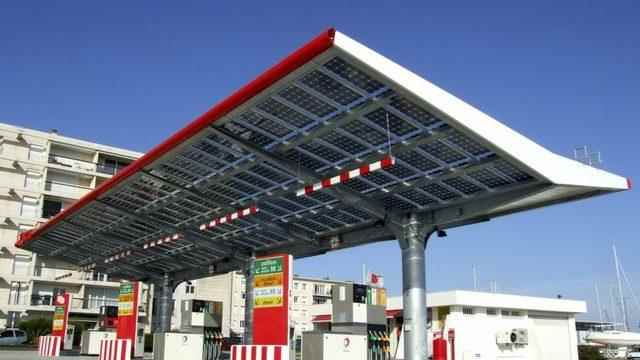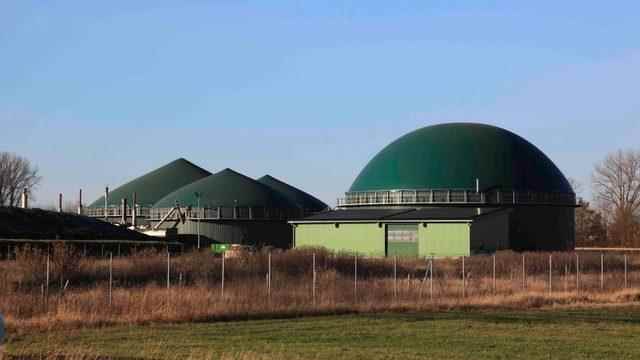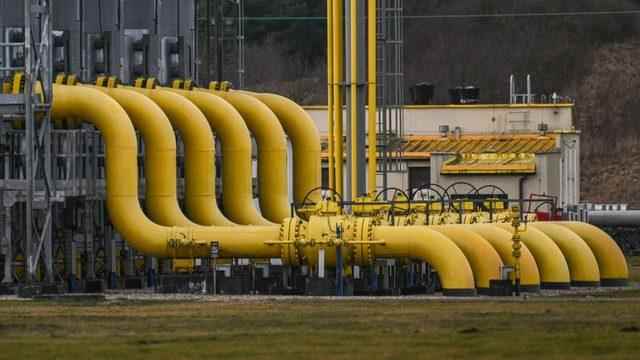The European Commission has outlined a new energy roadmap designed to reduce the European Union’s (EU) dependency on Russian gas by two-thirds in just one year.
The plan envisions ending all dependence on Russian fossil fuels “well before” 2030.
The EU also proposes a massive increase in the use of renewable energy sources, biogas and hydrogen.
In the short term, gas should be sourced from the USA and Africa, while some countries may need to use more coal in the coming months.
This may increase carbon emissions in the short term, but the long-term goal is a faster transition to sustainable sources.
priority gas
Russia’s invasion of Ukraine brought a new perspective to Europe’s dependence on the country for oil and gas.
The EU gets roughly 40 percent of its gas from Russia: that dependency costs about $118 million a day, according to figures from the Transport and Environment research group.
But moving at a pace few saw possible, the EU has devised a strategy that could reduce dependence on gas by two-thirds within a year.
The plan, called REPowerEU, aims to make Europe independent of Russian fossil fuels by 2030, but focuses primarily on gas only.
The roadmap essentially proposes finding alternative gas sources in the next few months, doubling the capacity of greener power sources and increasing energy efficiency in the medium and long term.
EU Commission Vice-President Frans Timmermans said it was “very difficult” to implement these steps, but said “it is possible if we are willing to go further and faster than we have accomplished before”.
The Commission’s new proposals will make it a legal requirement for EU countries to have minimum gas stocks.
The goal is to increase gas stocks, which is currently around 30 percent, to 90 percent capacity by autumn.
Negotiations are ongoing with existing gas suppliers, including Norway, Algeria and Azerbaijan, for alternative routes.
The need for coal may increase
Another important focus for the EU in the coming months will be increasing Liquefied Natural Gas (LNG) imports from suppliers such as the USA, Qatar and Australia.
But with Germany announcing its plan to build two new LNG terminals to increase supply, some experts worry this could increase longer-term dependence on fossil fuels.
Professor of the Finnish Environment Institute and the University of Sussex. “I think we are living in a difficult time, there is a lot of political pressure to make these energy policy decisions,” said Paula Kivimaa.
“But we must also look beyond the next few years. If Germany builds new LNG infrastructure, there is also the risk of shutting it down in the near future.”
The Commission believes that the dependence on Russia will decrease thanks to the new renewable energy projects to be implemented as well as to diversify the gas supply.
The EU says countries should use the revenues from the Emissions Trading System, which has nearly doubled in size since 2020, to fund these green energy projects.
But dirtier energy sources such as coal may also be needed in the next few months.
“The power sector has the capacity to generate more electricity with coal and biofuels, and there are also some new wind and solar products coming into play,” says Carol Torres Diaz, Head of Gas and Energy Markets at independent energy research firm Rystad Energy.

“As electricity generation is the largest gas consumer in the energy sector, there may be a way to reduce some of the dependency and the plan could be implemented later this year.”
Frans Timmermans realizes that for some countries it may make sense to switch to coal in the short term, but this choice may present other challenges. Europe gets about 30 percent of its coal from Russia.
Alternatively, coal is not easily available from countries such as South Africa and Colombia.
Switching to coal for any reason will also rapidly increase carbon emissions, which are already on the rise.
“We’ve already seen emissions from coal increase last year due to an 18 percent increase in electricity generation from coal,” says Carlos Torres Diaz.
“If this continues, emissions will continue to rise in 2022 because electricity generation from coal produces twice as many emissions as gas production.”
potential in solar energy
The Commission’s plan also states that renewable energy projects need to be accelerated, saying there is great potential for solar installations on rooftops.
The commission says a quarter of the block’s electricity consumption could be generated from panels in homes, farms and commercial buildings.
Seeking to reduce reliance on natural gas from any source, the Commission also calls for a massive increase in biogas produced from agricultural and food waste.
Given the extra investment in renewables, this could also lead to a significant increase in green hydrogen that can be produced from wind and solar power.
The Commission calls for quadrupling hydrogen use by 2030.
“By 2050 they would already be turning to green hydrogen in the next 20-30 years,” says Mike Foster, CEO of the UK trade association Energy and Utilities Association.

The plan won’t work cheap
“Actually, the crisis has brought this solution forward, and you’ve probably gained at least 10 years with the decisions you make in the 2020s.”
Some dissenting voices may be heard when EU leaders meet in the city of Versailles this week. All will agree that all these proposed changes will not come cheap.
In the transition, rights advocates say European governments must protect the poorest.
Mike Davis, of Global Witness, an international non-governmental organization (NGO) working in the field of human rights, said: “In parallel with the imposition of sanctions against Russia, Europe’s ongoing energy poverty crisis does not deepen and no one has to choose between heating and eating. a support package must be distributed,” he says.
“The need for everyone to have enough income to heat their homes should take precedence over concerns about economic growth.”
The Commission will encourage countries to take a number of measures to protect consumers, including levying taxes on the profits of energy companies.
While the poorest may receive some protection, there will be additional victimization on the price front in the short run.
“I don’t see a simple formula for protecting consumers from the costs of all this transition,” says Carlos Torres Diaz of Rystad.
